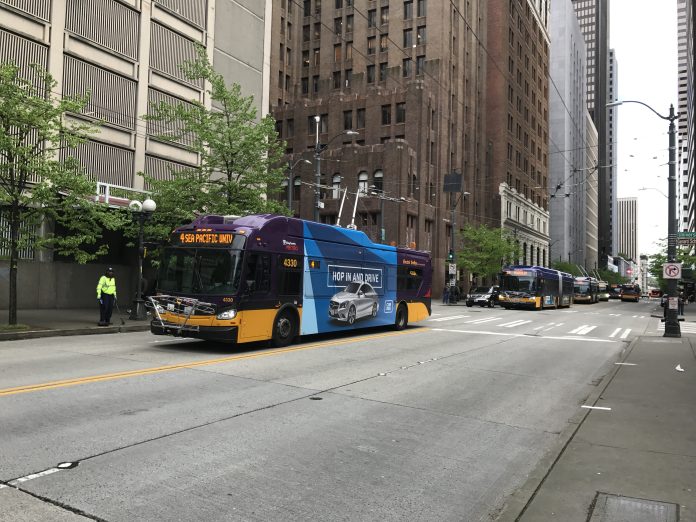Yesterday, King County Metro and Sound Transit announced a summer pilot program that would reduce youth fares on bus and train services. The pilot program is billed as way to incentivize youth to keep riding transit even during their summer months away from school. Youth riders (aged six to 18) with a registered ORCA Youth card would have fares capped at $0.50 per trip on Metro buses and Seattle Streetcar, and $1.00 per trip on Sound Transit buses and trains.
A typical youth fare on Metro buses is $1.50 per trip and fares on Sound Transit buses and trains range from $1.50 to $4.25, so the savings through the pilot program could be significant for youth riders making trips throughout the region. Youth riders who choose to purchase a monthly pass for their ORCA card and us on Metro will pay as little as $18 per month; a monthly pass* to cover $1.00-fares will cost $36.

According to Metro, youth ridership is significantly higher during months that school is in session. Youth ORCA card data indicates that 400,000 boardings are made by passholders during the school year and fewer than 130,000 boardings in the summer. So far, five school districts (including Seattle Public Schools) in King County issue free ORCA Youth passes to their students for transportation. However, all of those passes expire once school adjourns for summer break.
Youth riders without a current ORCA Youth card will be eligible to receive a free one (a savings of $5.00) from Metro. To get a free ORCA Youth card, applicants can go to ORCASummerYouth.com and follow the application procedures, visit Metro’s sales office in Pioneer Square, or at public events that Metro is participating in throughout the summer. The program will kick off in mid-June and run through Labor Day.
*Pierce Transit also has $1.00-fares for youth riders during the summer; Everett Transit has $0.75-fares for youth. A monthly pass for $1.00-fares would cover both transit systems as well.
Stephen is a professional urban planner in Puget Sound with a passion for sustainable, livable, and diverse cities. He is especially interested in how policies, regulations, and programs can promote positive outcomes for communities. With stints in great cities like Bellingham and Cork, Stephen currently lives in Seattle. He primarily covers land use and transportation issues and has been with The Urbanist since 2014.


